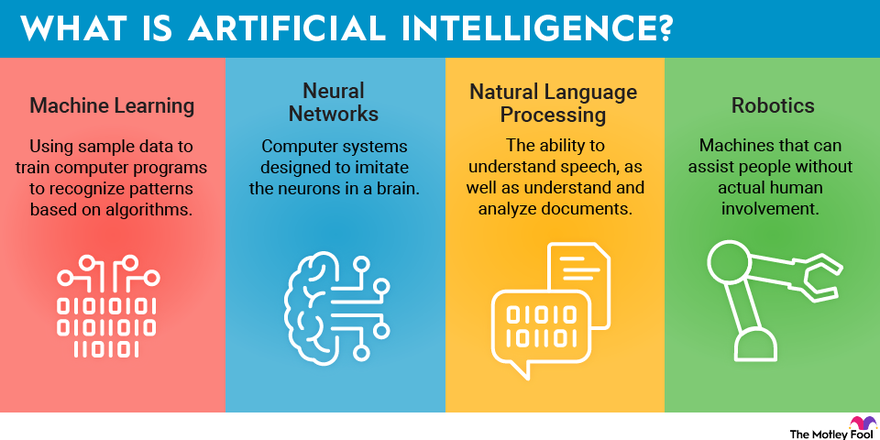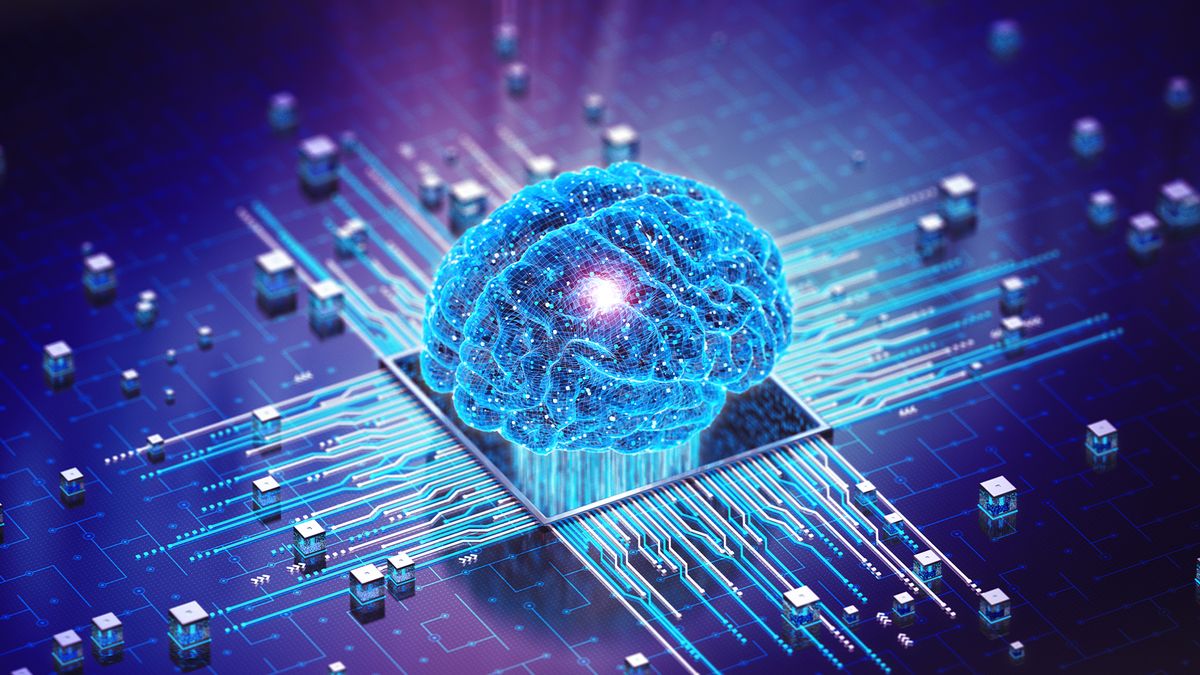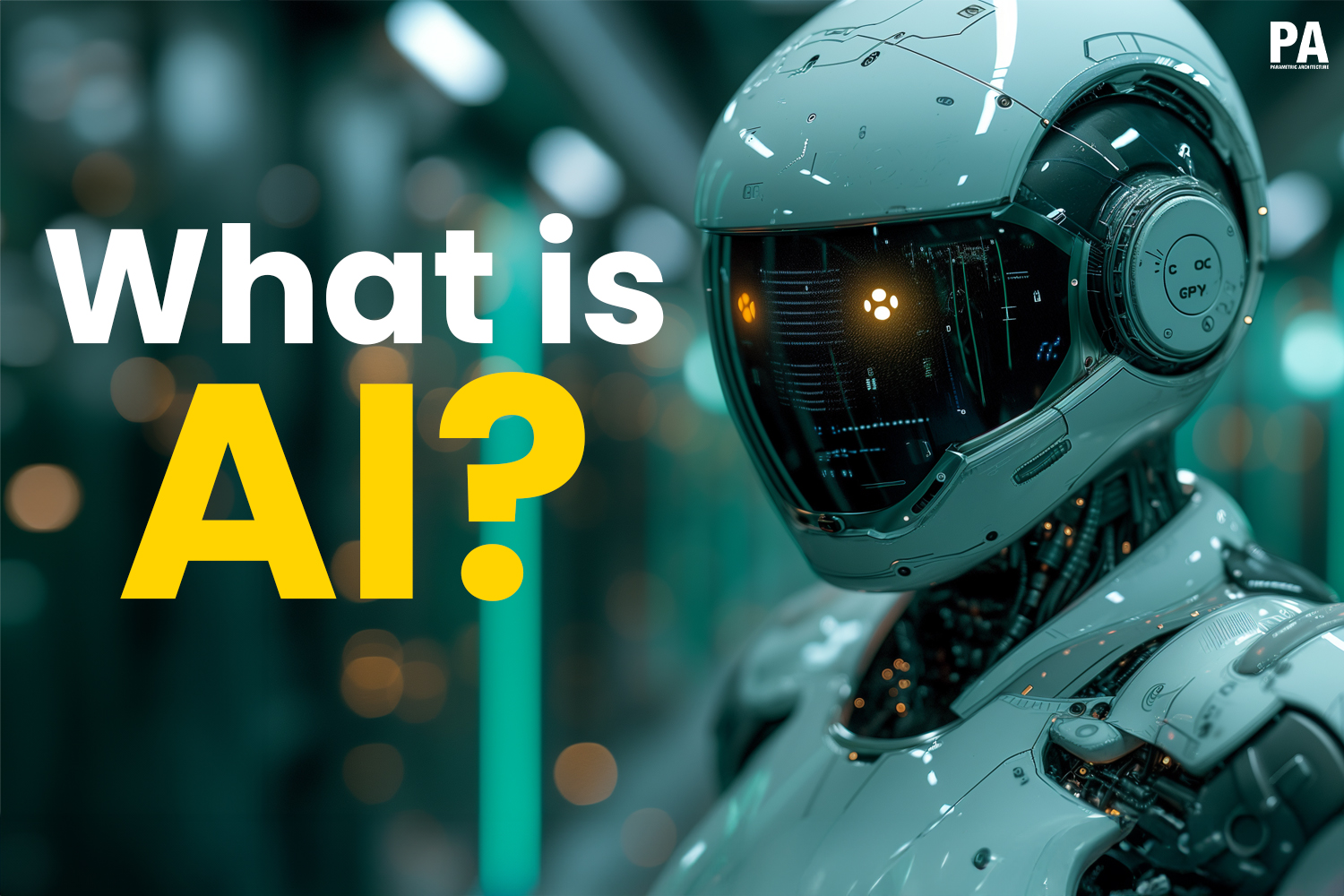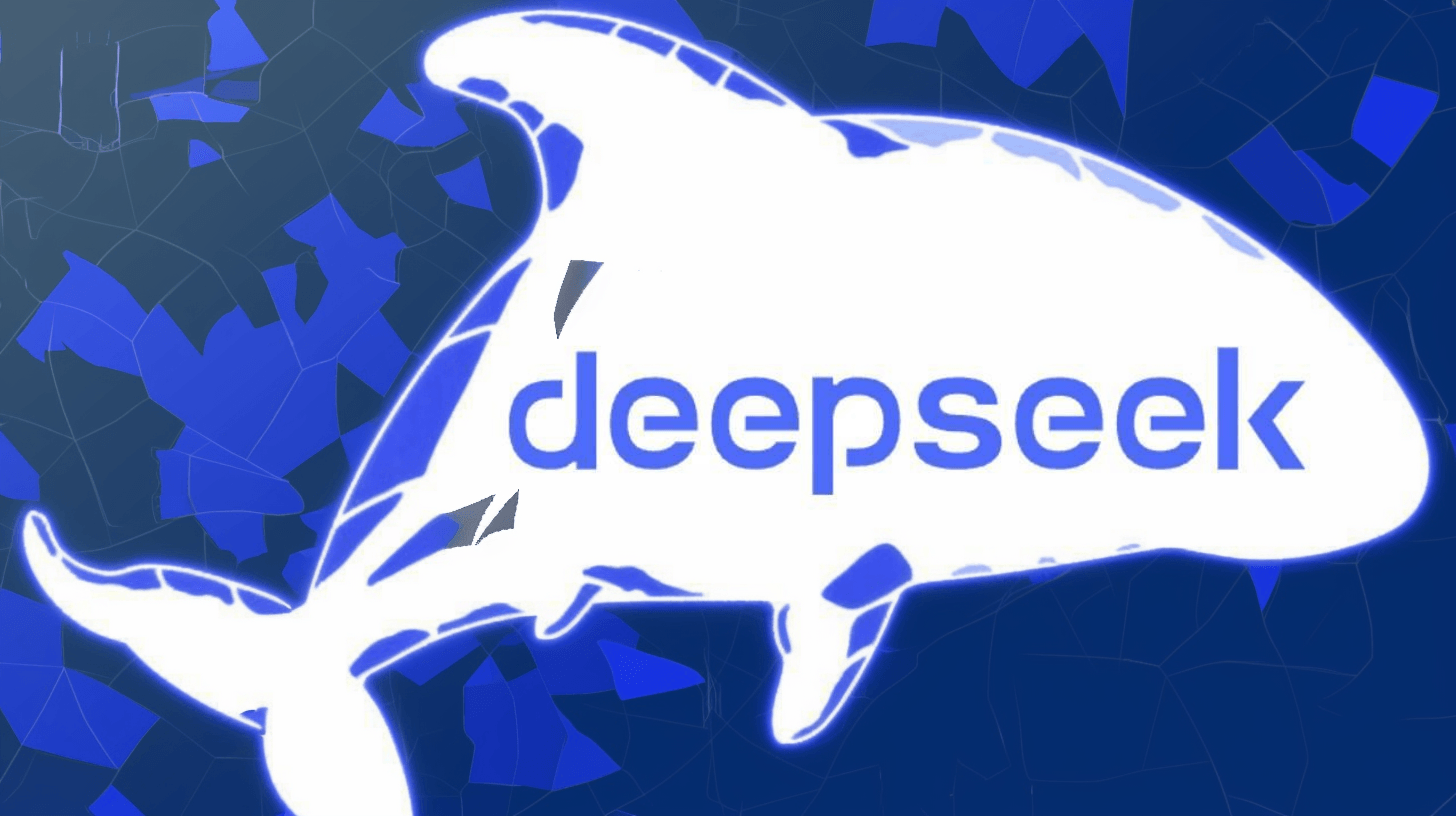
We might make money when you click on links to our partners. Learn More.

What is artificial general intelligence (AGI), and why does it matter? As one of the most talked-about topics in technology today, it has sparked a race amongst top business like OpenAI and Google to turn this cutting-edge principle into truth. Understanding AGI is necessary because it has the prospective to revamp markets, affect our society in extensive ways, and change the method we communicate with technology. Here's what you require to learn about what it might be able to do, how it may change industries and fields, and the substantial challenges facing its development.

KEY TAKEAWAYS
• AGI varies from conventional AI in key methods that it would have the ability to believe, find out by itself, and adjust to new difficulties like people unlike conventional AI, which is developed for specialized tasks and oke.zone runs within a minimal scope. It requires humans to upgrade and improve capabilities. (Jump to Section).
• Once it comes true, coastalplainplants.org AGI would have the ability to make amazing advances in numerous fields, consisting of healthcare, research study, and financing sectors. (Jump to Section).
• Creating AGI is challenging due to the research challenges that include technical, ethical, and social issues. Addressing these challenges is central to preserving the safe and positive advancement of this innovation. (Jump to Section)
Featured Partners: Artificial Intelligence Software
Learn More
TABLE OF CONTENTS
What is Artificial General Intelligence (AGI): A Clear Definition.
Understanding AGI vs Traditional AI.
Potential Applications of Artificial General Intelligence.
Challenges in Artificial General Intelligence Research.
3 Introductory AGI Courses to Consider.
Frequently Asked Questions (FAQs).
Bottom Line: Why Knowing What Is Artificial General Intelligence Matters.
What is Artificial General Intelligence (AGI): A Clear Definition
Artificial basic intelligence, or AGI, describes a type of synthetic intelligence (AI) that can interpret, find out, and perform any cognitive job that a human can do. Unlike today's AI, which is developed to manage specific jobs like recommending products or processing information, AGI would be able to adapt to brand-new obstacles and apply knowledge across various fields. In other words, this advanced type of AI would think and reason like a human. While AGI holds excellent possible, it deserves keeping in mind that it is still a concept today, without any completely established systems readily available yet.
Key Capabilities of Artificial General Intelligence
AGI would have a variety of capabilities that simulate human intellectual functions, so it can carry out jobs beyond the narrow focus of the present AI tools in the market. Some essential abilities include the following:
Human-Like Reasoning: The innovation would have the ability to comprehend and make decisions the way humans do. It would think critically, resolve problems, and develop options based on its own experiences and past interactions, similar to how we apply past knowledge to new scenarios.
Solving Unfamiliar Problems: Among AGI's strengths is its possible to tackle new problems. Unlike conventional AI, which is trained to perform specific tasks, AGI would have the capability to handle problems it hasn't been directly trained to resolve. It might find out how to approach a totally new difficulty, much like human beings do when confronted with something we've never ever come across before.
Self-Learning and Adapting: AGI could fine-tune its skills and gain from experience, without the requirement to be by hand upgraded every time. It would observe and analyze information, gain from mistakes, and discover much better methods to finish tasks with time. This indicates AGI could adjust to new situations and improve at tasks on its own.
Using Knowledge Across Different Areas: AGI would be able to take what it learns in one area and use it to other jobs. For example, if it found out how to solve mathematics issues, it might utilize that knowledge to resolve difficulties in other fields, like science or company. The capability to transfer skills across different locations is something people do naturally and would make the technology flexible in diverse sectors.
Understanding and Responding to Emotions: Recognizing and reacting to human emotions would likewise be within AGI's capabilities. This would be essential in settings where comprehending people's feelings matters, such as healthcare, customer support, or social situations. By reacting to feelings appropriately, wiki.dulovic.tech AGI would be better equipped to work with human beings in an effective way.
Understanding AGI vs Traditional AI
The table below supplies a photo of the significant distinctions between AI and standard or narrow AI by highlighting their capabilities, flexibility, and present status.
AGI would have the ability to believe, learn autonomously, and adapt to new challenges like people. However, it is still theoretical and has not been realized yet. On the other hand, traditional AI is built for particular jobs and runs within a repaired scope. It can not adapt to new tasks without human input.
For example, an AGI could find out to detect medical conditions, then use that knowledge to develop customized treatment plans-and even change its approach based upon the patient's progress. Additionally, it could use this problem-solving ability to tasks in completely various fields, such as producing business techniques or recommending on environmental conservation. On the other hand, conventional AI, like a diagnostic tool, can only analyze medical information for specific conditions. It can not adapt to other areas or enhance on its own.
Potential Applications of Artificial General Intelligence
While AGI isn't here yet, its prospective applications span various fields and hold fantastic pledge of extreme advancements in many sectors. Without being restricted to specific tasks like narrow AI, AGI would be highly versatile and could apply its capabilities to resolve multi-disciplinary issues. It could get rid of challenges presently beyond the capabilities of existing AI applications.
Transforming Healthcare
AGI would change the game in health care by identifying complex and rare illness with greater precision, even in cases where signs are uncertain or overlap with multiple conditions. It could develop extremely tailored treatment strategies by studying client history, hereditary details, and real-time health information. In addition, AGI could accelerate drug discovery, determining possible treatments in weeks instead of years by processing massive datasets and running predictive simulations.
Advancing Scientific Research
In scientific research, AGI would have the ability to imitate experiments, evaluate elaborate datasets, and create hypotheses. It might speed up developments in quantum physics, genomics, and environment science. By incorporating knowledge from numerous domains, the technology could discover connections and services that might otherwise go undetected by standard AI.
Improving Industry
Organizations in the commercial field could utilize AGI to improve effectiveness in real-time by handling whole supply chains. It would predict and resolve interruptions before they occur. In manufacturing, it might oversee autonomous factories, optimizing production processes while maintaining security and quality requirements. Its ability to adapt to altering circumstances would make it an invaluable tool in industrial environments.
Enhancing Business Strategy
AGI might enhance service decision-making by evaluating market trends, client behavior, and functional information to discover chances and dangers. In contrast to narrow AI systems, AGI would innovate services to challenging business issues, such as handling financial uncertainty or forecasting long-lasting market shifts. Its ability to gain from varied sources would empower organizations to remain competitive.

Redefining Finance
In the monetary sector, AGI might increase forecasting accuracy by discovering patterns in huge amounts of monetary information, so financiers and organizations can make informed choices. It would likewise be able to spot scams in real-time by recognizing subtle abnormalities that traditional AI systems might miss out on. Additionally, AGI might build more robust monetary designs, considering complicated variables and circumstances to reduce dangers.
Challenges in Artificial General Intelligence Research
Developing AGI is one of the most enthusiastic goals in technology, however it includes lots of difficulties. These difficulties include technical, ethical, and societal areas, making AGI development an intricate and multi-faceted procedure. Overcoming the following challenges amounts making sure safety, maintaining ethical standards, and thoroughly preparing how AGI's introduction and usage will affect individuals, industries, and society as a whole:
Making AGI Truly Flexible: AGI would need to handle a vast array of problems and adapt to brand-new circumstances, similar to humans. Building a system of flexibility is incredibly hard since present AI tools are not created to believe or learn at this level of sophistication.
Massive Computing Needs: To duplicate human intelligence, AGI would need enormous amounts of computing power to process details from varied sources quickly. Figuring out how to make such systems effective and efficient enough for real-world use is a considerable difficulty.
Understanding Human Intelligence: We don't fully comprehend how human believing works, especially complicated elements like intuition or awareness. Without this understanding, it's challenging to build devices that can replicate human-like thinking.
Making AGI Safe and Ethical: AGI could potentially be misused, like to create prejudiced systems or damaging tools like self-governing weapons. Researchers must ensure that AG is constructed responsibly and follows strict ethical standards. This is a challenging task that requires international collaboration.
Keeping It Under Control: There's a threat AGI might act in ways we do not expect, specifically given that it would have the capability to discover and change with time. Ensuring that these systems stay aligned with human worths and are safe to utilize is one of the most significant challenges in AGI research.
Influence on Jobs and Society: If AGI ends up being a reality, it might replace jobs or trigger economic inequality by benefitting some groups more than others. Getting ready for these social impacts is just as important as constructing the technology itself.
High Costs and Resources: Researching AGI requires a lot of money, time, and specialist understanding. Not all organizations have these resources, slowing down progress and leaving smaller companies out of the race.
3 Introductory AGI Courses to Consider
Familiarizing yourself with AGI can offer you an one-upmanship, whether you wish to advance your profession in AI or merely want to stay informed about emerging technologies. The following introductory courses can help you acquire a much deeper understanding of what synthetic general intelligence is, so you can solidify your understanding about this appealing AI advancement.
Artificial General Intelligence (AGI): An Initial Course on Udemy
This Udemy course provides a basic understanding of AGI, appropriate for beginners with no previous experience. The course covers appropriate topics, including the structures of AI, the essentials of AGI, and the newest patterns in the field. It also checks out the advantages, risks, and obstacles associated with AGI, equipping you with insights into what the innovative innovation can achieve. The whole course includes 15 lectures and can be completed in roughly 45 minutes. Upon conclusion, you will receive a certificate to reinforce your credentials in the task market. This initial course costs $24.99.
Intro to Artificial General Intelligence (AGI): Future of AI on Udemy
Udemy's introductory course provides an extensive overview of AGI for learners without any technical background. It discusses the historic context and foundation of AGI, the distinctions in between narrow AI and AGI, and ethical considerations surrounding its development. In addition, it addresses future trends in AI and AGI, shedding light on the obstacles and chances that lie ahead. Spanning one hour and 46 minutes, the course includes 39 lectures, on-demand video, and downloadable resources. It also has a dry run at the end to strengthen your understanding. You will be awarded a certificate as soon as you complete the course. It is available as part of Udemy's premium strategies, starting at $20 monthly, or as a different purchase of $49.99.
Artificial General Intelligence (AGI) on Udemy
This Udemy course brings a clear and concise introduction to the topic, with on-demand videos and 22 lectures. It elaborates on significant AGI concepts and the role of robotics in AGI advancement. It likewise takes a look at the ethical, software, and hardware difficulties in developing AGI. The course supplies tests to check your understanding and a certificate of completion. Priced at $44.99, it is made for wikitravel.org learners at any level, making it accessible and valuable for anybody who desires to find out more about AGI.
Frequently Asked Questions (FAQs)
Achieving AGI could revolutionize industries, improve decision-making, and lead to significant developments in innovation. However, it also raises concerns about ethics, job displacement, and the requirement for correct regulation to make certain it is established safely and responsibly.
Experts disagree on how far we are from attaining AGI. Sam Altlman of OpenAI thinks in 2025, AI representatives may sign up with the workforce, ultimately paving the way to AGI advancement. On the other hand, a study of AI researchers puts the median estimate around 2047. Despite rapid AI advancements, current systems are still restricted to narrow tasks and lack the broad, flexible reasoning of humans-so AGI is likely still years away.
The idea of AGI fully replacing human beings is still disputed. Even though it's most likely that AGI will help us by taking control of repeated tasks, there is a possibility that it could displace specific tasks. That stated, instead of entirely changing human beings, AGI is anticipated to work together with us, handling technical duties while we focus on jobs that need imagination and empathy. At the end of the day, the results of AGI will depend upon how society picks to handle and integrate it.

Bottom Line: Why Knowing What Is Artificial General Intelligence Matters
Understanding artificial basic intelligence is vital since this technology might change industries, resolve hard issues, and transform how we use AI. But as we start to establish AGI, we need to thoroughly resolve a number of obstacles, consisting of technical concerns, ethical concerns, and its general influence on society. By learning more about AGI's potential and dangers, we can work toward making sure it is created responsibly and used in manner ins which would benefit everyone.







